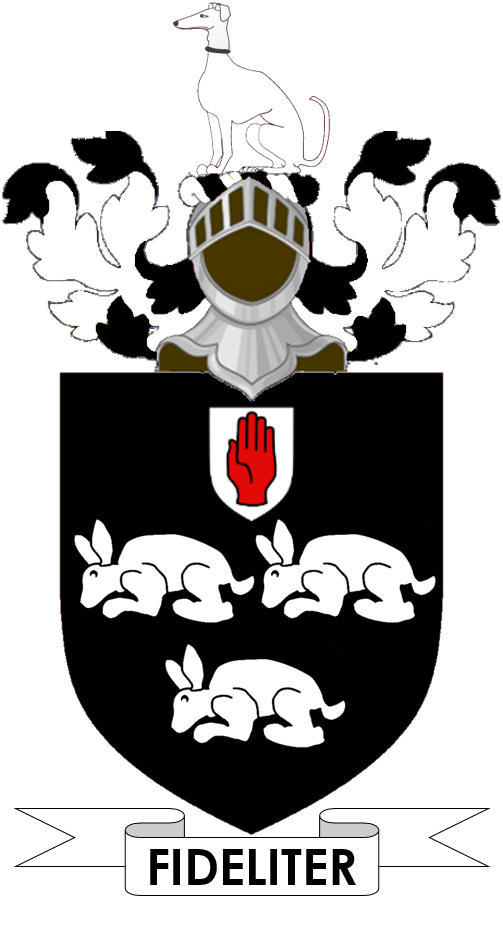Cunliffe Baronets on:
[Wikipedia]
[Google]
[Amazon]
 The Cunliffe Baronetcy, of
The Cunliffe Baronetcy, of
History of the Cunliffe family
Cunliffe 1759 establishments in Great Britain
 The Cunliffe Baronetcy, of
The Cunliffe Baronetcy, of Liverpool
Liverpool is a port City status in the United Kingdom, city and metropolitan borough in Merseyside, England. It is situated on the eastern side of the River Mersey, Mersey Estuary, near the Irish Sea, north-west of London. With a population ...
in the County of Lancaster, is a title in the Baronetage of Great Britain
Baronets are hereditary titles awarded by the Crown. The current baronetage of the United Kingdom has replaced the earlier, existing baronetages of England, Nova Scotia, Ireland and Great Britain.
To be recognised as a baronet, it is necessary ...
. It was created on 26 March 1759 for Sir Ellis Cunliffe, a slave trade Slave trade may refer to:
* History of slavery - overview of slavery
It may also refer to slave trades in specific countries, areas:
* Al-Andalus slave trade
* Atlantic slave trade
** Brazilian slave trade
** Bristol slave trade
** Danish sl ...
r and Member of Parliament for Liverpool
Liverpool is a port City status in the United Kingdom, city and metropolitan borough in Merseyside, England. It is situated on the eastern side of the River Mersey, Mersey Estuary, near the Irish Sea, north-west of London. With a population ...
. The fourth Baronet was a General in the Bengal Army
The Bengal Army was the army of the Bengal Presidency, one of the three presidencies of British India within the British Empire.
The presidency armies, like the presidencies themselves, belonged to the East India Company (EIC) until the Gover ...
. The fifth Baronet represented Flint Boroughs and Denbigh Boroughs in the House of Commons
The House of Commons is the name for the elected lower house of the Bicameralism, bicameral parliaments of the United Kingdom and Canada. In both of these countries, the Commons holds much more legislative power than the nominally upper house of ...
.
Three other members of the family may also be mentioned. George Gordon Cunliffe (1829-1900), son of Brooke Cunliffe, fourth son of the third Baronet, was a major-general in the British Army
The British Army is the principal Army, land warfare force of the United Kingdom. the British Army comprises 73,847 regular full-time personnel, 4,127 Brigade of Gurkhas, Gurkhas, 25,742 Army Reserve (United Kingdom), volunteer reserve perso ...
. His son Frederick Hugh Gordon Cunliffe (1861–1955) was a brigadier-general in the Seaforth Highlanders
The Seaforth Highlanders (Ross-shire Buffs, the Duke of Albany's) was a line infantry regiment of the British Army, mainly associated with large areas of the northern Highlands of Scotland. The regiment existed from 1881 to 1961, and saw service ...
. Robert Lionel Brooke Cunliffe, son of Colonel Foster Lionel Brooke, son of the aforementioned Brooke Cunliffe, fourth son of the third Baronet, was a captain
Captain is a title, an appellative for the commanding officer of a military unit; the supreme leader or highest rank officer of a navy ship, merchant ship, aeroplane, spacecraft, or other vessel; or the commander of a port, fire or police depa ...
in the Royal Navy
The Royal Navy (RN) is the naval warfare force of the United Kingdom. It is a component of His Majesty's Naval Service, and its officers hold their commissions from the King of the United Kingdom, King. Although warships were used by Kingdom ...
.
Cunliffe baronets, of Liverpool (1759)
* Sir Ellis Cunliffe, Kt., 1st Baronet (1717–1767) * Sir Robert Cunliffe, 2nd Baronet (1719–1778) * Sir Foster Cunliffe, 3rd Baronet (1755–1834) * Sir Robert Henry Cunliffe, 4th Baronet, Kt., CB (1785–1859) * Sir Robert Alfred Cunliffe, 5th Baronet (1839–1905) * Sir Foster Hugh Egerton Cunliffe, 6th Baronet (1875–1916) * Sir Robert Neville Henry Cunliffe, 7th Baronet (1884–1949) * Sir Cyril Henley Cunliffe, 8th Baronet (1901–1969) * Sir David Ellis Cunliffe, 9th Baronet (born 1957) Theheir presumptive
An heir presumptive is the person entitled to inherit a throne, peerage, or other hereditary honour, but whose position can be displaced by the birth of a person with a better claim to the position in question. This is in contrast to an heir app ...
is the present holder's younger brother Andrew Mark Cunliffe (born 1959). His heir apparent
An heir apparent is a person who is first in the order of succession and cannot be displaced from inheriting by the birth of another person. A person who is first in the current order of succession but could be displaced by the birth of a more e ...
is his son Mark Ellis Cunliffe (born 1982).
Notes
References
*Kidd, Charles, Williamson, David (editors). ''Debrett's Peerage and Baronetage'' (1990 edition). New York: St Martin's Press, 1990, *{{Rayment-bt , date=February 2013External links
History of the Cunliffe family
Cunliffe 1759 establishments in Great Britain